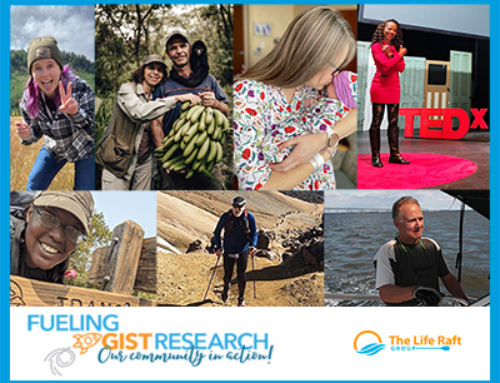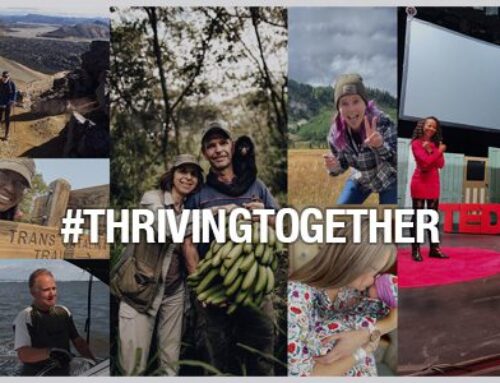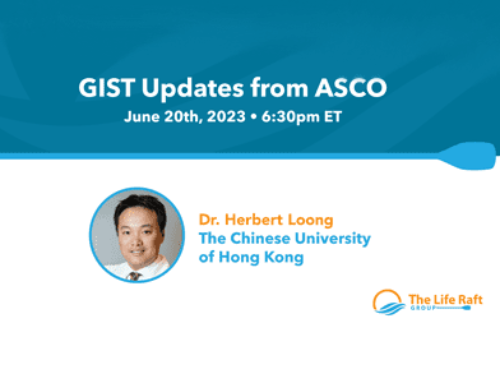GIST & CML patient reps had a successful meeting in Lisbon for Patient Summit. The following is excerpted from a Novartis Pharmaceuticals’ news release:
The 7th annual international “New Horizons Conference for Organisations Representing People with CML or GIST” was held this year in Lisbon, Portugal from June 26 to 28. Sponsored by Novartis and held for the seventh year, the conference once again demonstrated the value of bringing together patient advocacy groups from around the world to share their ideas and experiences and to get latest updates from medical professionals. The conference featured 30 hours of presentations from a dedicated and enthusiastic faculty of various disciplines and stakeholder groups.
Where the first New Horizons meeting in 2003 had only 28 advocates, this year’s conference welcomed a record 126 advocates from 49 different countries in Europe, North America, Australia, Asia, Africa and Latin America. Norman Scherzer, Executive Director of the Life Raft Group declared “The conference has become an incubator for new organisations from around the world”.
With cancer set to be a global epidemic and the leading cause of death in the near future, and with rare cancers making up around 95 % of all known cancer types, them meeting of representatives of rare cancer patient groups in the CML and GIST space has demonstrated how much can be achieved by active advocacy, international collaboration and mutual training.
Special consideration was given to the concerns of growing advocacy groups and their need to establish legitimacy, trust and credibility through good governance. Presentations from larger advocacy groups such as the Rarer Cancers Forum UK and Sarcoma Patients EuroNet (SPAEN) demonstrated how a bigger collective voice can exact better services from providers and enable groups to support and help one another, improve access to clinical trials and to develop the leverage necessary to campaign at policy level for the best possible care for people with rare cancers.
“Global communication is really important” commented Markus Wartenberg, Executive Director of “Das Lebenshaus”. “The inappropriate management of rare cancers has an enormous cost. Inefficient trials waste money and time. Patient advocacy groups and physicians must work together to generate more efficient and rapid results”. Judith Robinson from the GIST support UK added: “Rare cancer sufferers are isolated and there is a psychological benefit as well as a clinical benefit in being able to share information as well as to help find experts and even other patients”.
Patient groups were given the opportunity to present their advocacy initiatives during interactive best practice workshops on a wide range of topics. Whilst the GIST Collaborative Tissue Bank and Patient Registry, the Life Raft Group outlined its initiatives to partner with GIST researchers by sharing patients’ tissue and data for GIST research. Other subjects, such as the benefits of alternative therapies like osteopathy to relieve Imatinib treatment side effects, and the use of psychological support as shortterm crisis therapy, generated much interest and discussion.
Of note this year was a new focus upon the basic and urgent needs of cancer patients in poorer countries. Presentations from India and Columbia highlighted the challenges faced by patients in the developing world with low quality copies and counterfeit medicines. These drugs are often government sanctioned, despite the lack of quality control or bioequivalence studies. “I wish we could be in place where there were other choices” explained Viji Venkatesh of the Max Foundation India “We keep hoping that things will change. In the end, we all, both physicians and advocates want what is best for the patient”. Bureaucratic hurdles can make patient activism extremely difficult in developing countries. Advocates discussed the need to become more vocal about quality patient care and highlighted the role that international advocacy groups can play in helping patients in developing countries, such as by petitioning world health organisations to address the societal costs of substandard care.
The pharmacokinetics of Imatinib continues to be of great relevance to CML and GIST patients. GIST advocates were shown important study results on correlation of imatinib plasma level and clinical outcome, and plasma level testing as a tool in imatinib dose optimisation and GIST management. Shown were as well case studies on the benefits of adjuvant Imatinib for intermediate or high risk GISTs.
Another challenge facing advocacy groups is the issue of adherence. Poor adherence can have a considerable effect on drug response and the development of resistance, particularly in adjuvant therapy. Despite the obvious that cancer is a serious disease, a presentation of the ADAGIO study assessing compliance in CML therapy has shown the concerns are justified. “Over time, adherence to oral cancer therapies is a problem that is becoming more and more significant” observed Jan Geissler, Co-Moderator of the CML Advocates Network.
“Treatment is not the only priority patients have in life. Patients cannot solve their problem of non-adherence by themselves” said Estelle Lecointe, Director of the patient group “Ensemble contre le GIST” in her presentation about meeting challenge adherence. Methods to improve adherence are more and more becoming an integral part of good clinical practice. In a lively and interactive discussion, advocates discussed the issue of adherence, often drawing from their personal experiences. Various insights into solving the problem were offered, ranging from simply changing the Imatinib packaging from a 10-day to a 7-day format, to outlining the ways patient advocacy groups can work to educate both health care professionals and the patients about this subject.
Both CML and GIST advocates were united in their call for advocacy groups to become more active in creating a sense of urgency in promoting patient interests. “Chronic cancer care does not have the same priority as infectious disease care, said Markus Wartenberg “and this can result in delays in research and improvements for patients. In turn, rare cancers do not receive as much attention as more common ones”. Nikos Dedes, from the European AIDS Treatment Group, encouraged advocate groups to use the example of AIDS advocacy to work to build credibility and influence through strategic partnerships. “Joining together has created a significant movement for change in our community” he said, while Sandy Craine of the CML support group UK added “tough current economic times mean that rare cancer groups must join together to demand that research is taken up. We have a voice and should exercise our power as citizens”. As only one example, the participants learned about the call to action which is currently collecting signatures to create awareness and political action about what needs to be done for rare cancers.



